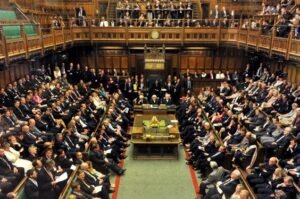
Political corruption is often seen as a problem primarily affecting authoritarian regimes, where unchecked power leads to widespread abuse. However, democracies, while founded on ideals of transparency, accountability, and public service, are not immune to corruption. In fact, some of the world’s leading democracies experience significant corruption, though it may appear in subtler, more complex forms. This article examines political corruption in democratic systems, explores why democracies are vulnerable to corruption, and analyzes recent trends and figures in democratic countries.
Understanding Political Corruption in Democracies
Political corruption occurs when public officials abuse their power for personal gain, often at the expense of the public interest. In democracies, corruption can take many forms, including bribery, nepotism, electoral fraud, influence peddling, misuse of public funds, and lobbying practices that unfairly benefit special interest groups.
Despite a democratic framework designed to promote transparency and accountability, certain factors in democracies can create opportunities for corruption. Weak institutional checks, a lack of enforcement, powerful lobbying entities, and campaign finance loopholes can all facilitate corruption in democratic nations.
Types of Political Corruption in Democracies
In democracies, corruption may not be as overt as in authoritarian systems, but it can still permeate political processes, eroding trust in governance. Some of the most common types of corruption in democratic countries include:
- Bribery and Influence Peddling: Elected officials may accept bribes or use their positions to secure advantages for themselves, their families, or associates. Influence peddling occurs when public officials use their political influence to benefit private interests, often in exchange for financial or political support.
- Electoral Fraud: Although less common in established democracies, electoral fraud still exists. Tactics like voter suppression, gerrymandering, and misuse of campaign funds can skew election outcomes, undermining democratic fairness.
- Lobbying and “Legal” Corruption: In many democracies, powerful interest groups exert significant influence over policymakers through lobbying. While not illegal, excessive lobbying creates an uneven playing field where wealthy entities have a disproportionate voice, often to the detriment of ordinary citizens.
- Nepotism and Cronyism: Politicians may use their influence to appoint friends, family members, or allies to positions of power. This practice, while common in many political systems, is particularly damaging in democracies as it weakens public trust and erodes meritocratic principles.
- Misuse of Public Funds: Misappropriation of taxpayer money for personal or political use is a form of corruption that often flies under the radar. In democracies, officials may misallocate public funds for personal projects, campaign expenses, or other non-public uses, effectively stealing from the people they are meant to serve.
The Global State of Corruption in Democracies
Transparency International’s Corruption Perceptions Index (CPI) measures perceived levels of corruption in public sectors around the world. In 2023, data from the CPI revealed that corruption remains a challenge in both developing and developed democracies. According to the CPI, no country in the world is entirely free from corruption, with most countries scoring below 50 out of 100 (where 0 is highly corrupt and 100 is very clean).
Notable CPI Scores for Democracies (2023):
- Denmark: Scored 90, making it one of the least corrupt countries. However, even Denmark faces scrutiny over lobbying transparency and private sector influence.
- New Zealand: Scored 87, consistently ranking among the least corrupt democracies. New Zealand has strict anti-corruption laws but faces occasional cases involving corporate lobbying.
- United States: Scored 67, indicating moderate levels of corruption. Issues in the U.S. often relate to campaign finance and lobbying, with large corporations exerting significant influence over policy decisions.
- India: Scored 40, reflecting widespread corruption challenges. In India, issues such as bureaucratic corruption, bribery, and cronyism remain prevalent, despite ongoing anti-corruption efforts.
- Brazil: Scored 38, struggling with political scandals and corruption in both government and corporate sectors. High-profile corruption cases continue to impact public trust in governance.
Why Are Democracies Vulnerable to Corruption?
- Complex Regulatory Environments: Democratic governments often have complex bureaucratic structures, creating opportunities for corruption at multiple levels. The need for approvals, permits, and regulations can lead to bribery, with officials taking advantage of the system to extract unofficial fees.
- Campaign Finance Loopholes: In many democracies, political campaigns rely on funding from private donors, corporations, and special interest groups. Inadequate regulation of campaign finance allows wealthy donors to exert influence over politicians, who may prioritize the interests of these donors over public welfare.
- Influence of Powerful Lobbies: In countries like the United States, lobbying is a legal means of influencing policy. However, the sheer financial power of certain industries—such as the pharmaceutical, energy, and defense sectors—often distorts democratic processes. Policies can end up favoring corporate interests rather than the public good.
- Weaknesses in Oversight and Enforcement: Many democracies have anti-corruption laws, but enforcement can be inconsistent. Underfunded or politically influenced regulatory bodies may lack the resources or independence to investigate and prosecute corruption effectively, allowing it to persist unchecked.
- Populist Leaders and “Strongmen” Politics: In some democracies, populist leaders consolidate power by weakening institutions that check corruption, including the judiciary and anti-corruption bodies. This erosion of checks and balances makes corruption more likely, as leaders prioritize personal or political agendas over accountability.
Recent Cases of Corruption in Democracies
- United States: In recent years, the role of money in U.S. politics has come under scrutiny, particularly in light of the Supreme Court’s Citizens United decision, which allowed unlimited corporate donations to political action committees (PACs). The decision has led to an influx of “dark money” in U.S. elections, raising concerns over corporate influence in policymaking.
- Brazil: Brazil has faced numerous corruption scandals, including the infamous “Operation Car Wash” investigation, which uncovered widespread corruption involving high-ranking officials and major corporations. The scandal implicated hundreds of politicians and led to billions in financial losses for state-owned companies.
- India: India has a long-standing problem with bureaucratic corruption, but recent high-profile cases—such as allegations of corruption in government procurement and scandals involving real estate developers—continue to highlight the prevalence of corruption at all levels of government. Anti-corruption initiatives have been implemented, yet corruption remains widespread.
- South Africa: South Africa’s former president Jacob Zuma faced extensive corruption allegations, involving misuse of public funds and improper influence in government contracts. The scandal led to the state capture inquiry, which revealed deep-rooted corruption in the government and business sectors.
Steps Toward Reducing Corruption in Democracies
- Transparency and Accountability Mechanisms: Increasing transparency in government contracts, public spending, and political donations can limit corruption. Many democracies have implemented online portals for public spending data, which allow citizens to monitor government expenditures.
- Campaign Finance Reform: Limiting the influence of private donations in politics can help reduce corruption. Campaign finance reforms, such as capping individual contributions and requiring transparency in political donations, make it harder for wealthy donors to exert undue influence.
- Strengthening Independent Regulatory Bodies: Anti-corruption agencies and regulatory bodies should operate independently, with adequate funding and authority to investigate and prosecute corruption cases without political interference. A strong, impartial judiciary also plays a crucial role in holding public officials accountable.
- Whistleblower Protections: Providing legal protections for whistleblowers encourages individuals to report corruption without fear of retaliation. Some democracies have implemented whistleblower protection laws, but their enforcement remains inconsistent.
- Public Education and Awareness: Educating citizens about corruption and their rights as voters can help build a culture of accountability. Civic education fosters awareness of democratic principles, the importance of transparency, and the public’s role in demanding ethical governance.
Conclusion
While democracies are founded on principles of accountability, transparency, and public service, they are not immune to political corruption. In fact, the complex structures of democratic governments can create unique opportunities for corruption, particularly when powerful interests influence policymakers. Recent cases and global corruption indices reveal that no democracy is entirely free from corruption, and even the most developed democratic nations face ongoing challenges in curbing it.
By strengthening anti-corruption institutions, reforming campaign finance, and fostering a culture of transparency, democracies can work toward reducing corruption. Ultimately, achieving a corruption-free democracy requires continuous effort, vigilance, and active engagement from both governments and citizens. While no system is perfect, democratic institutions, when adequately protected, have the potential to limit corruption and promote governance that genuinely serves the public interest.







